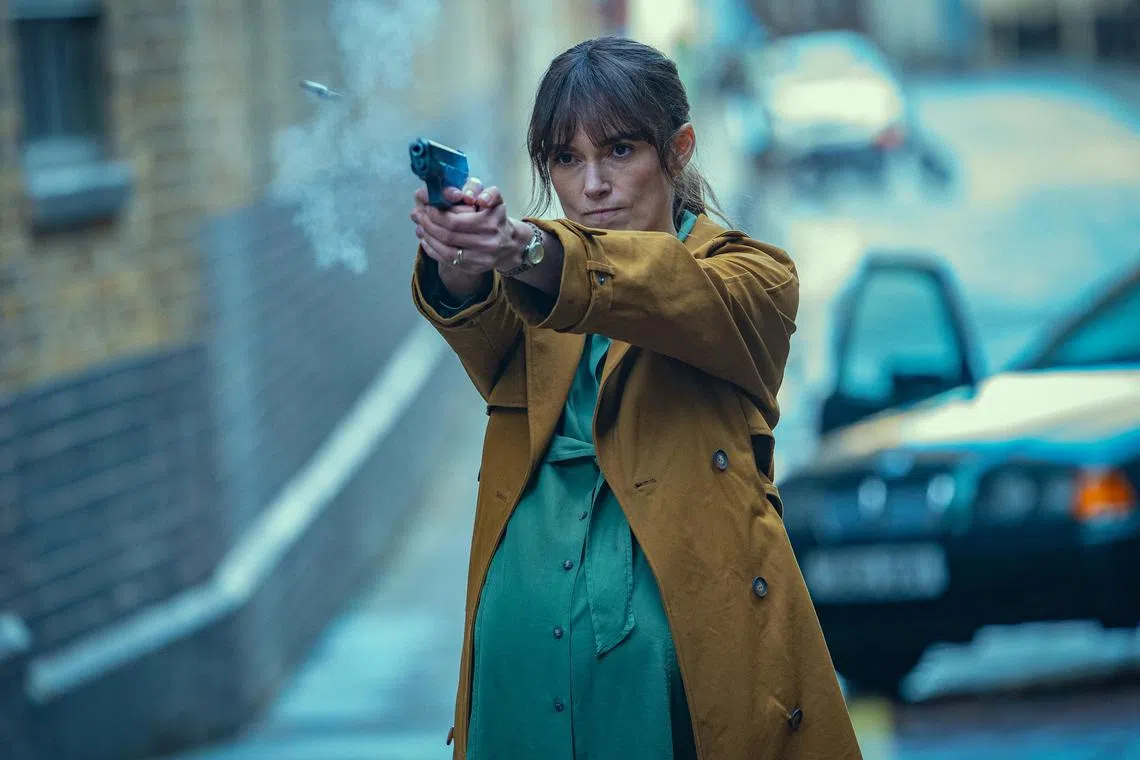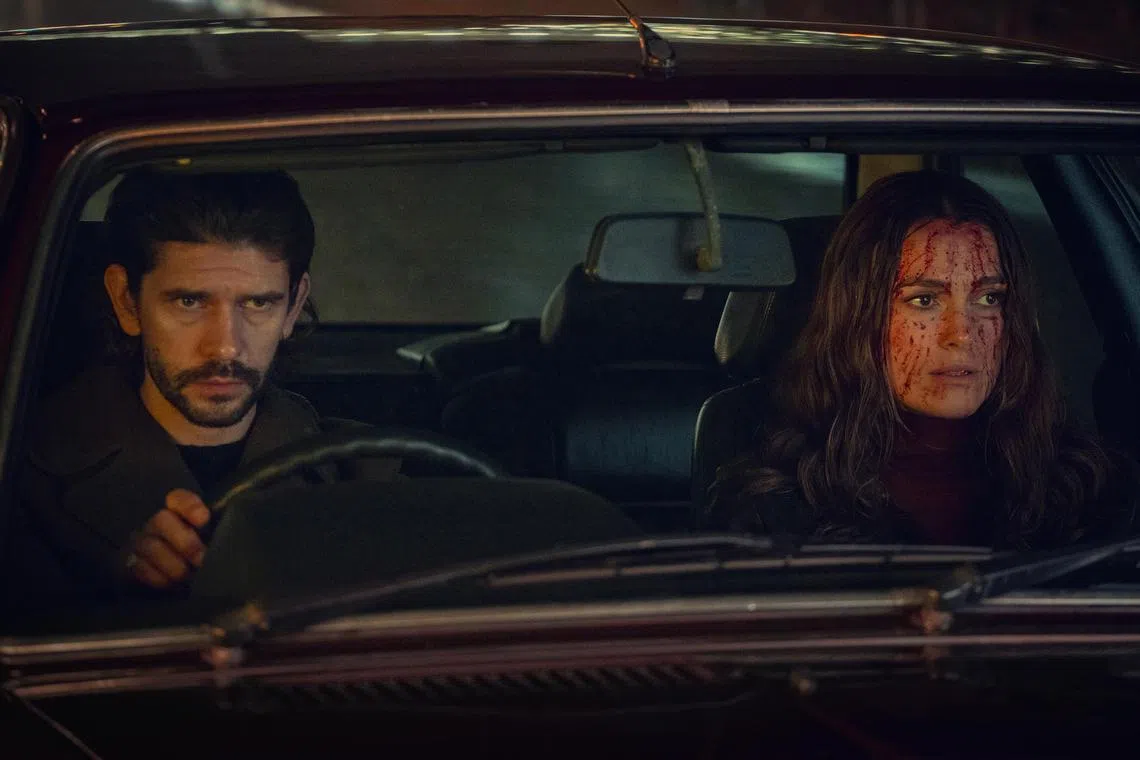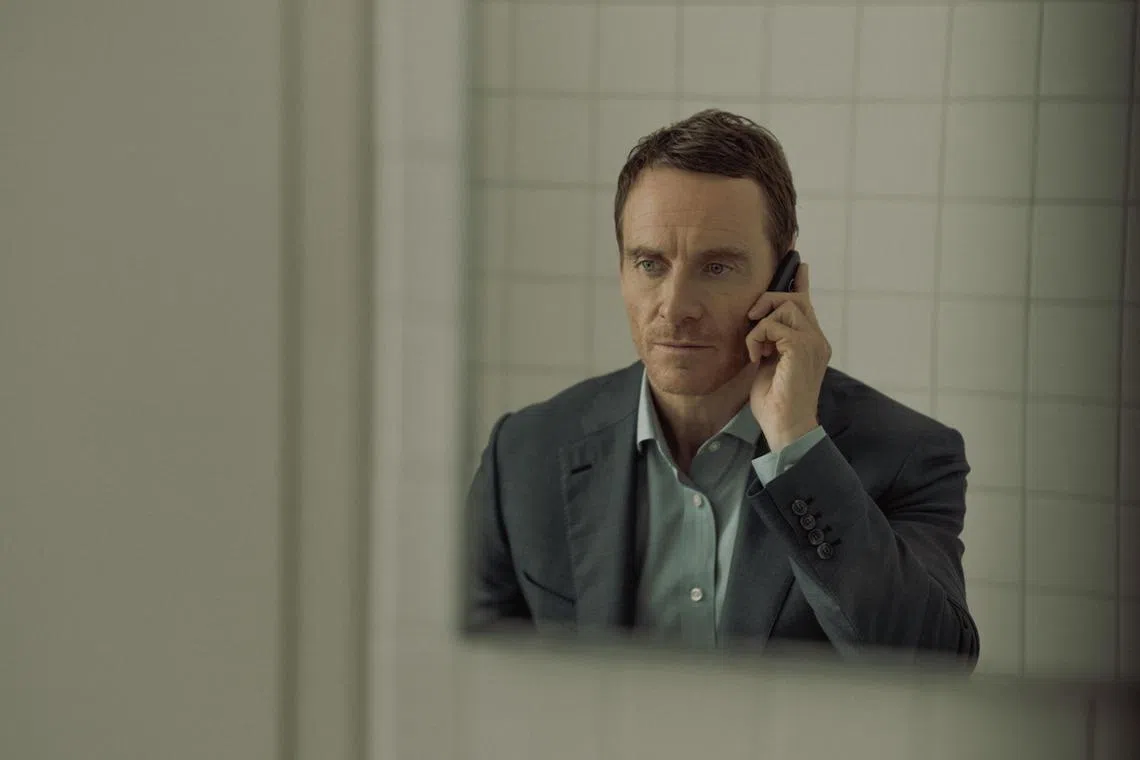Spy dramas like Black Doves and The Agency are getting in touch with their feelings
Sign up now: Get ST's newsletters delivered to your inbox

Keira Knightley in Black Doves.
PHOTO: NETFLIX
Follow topic:
NEW YORK – Ukraine and Russia are at war. Political instability and civil war rage in Sudan. Iran is ramping up its nuclear capabilities. The world is basically a mess in The Agency, the new espionage series that inundates the viewer with rapidly intersecting storylines set on an increasingly complicated geopolitical playing field.
The series, which premiered on Nov 29 on Paramount+ (with the Showtime tier), is part of a surge in spy shows that also includes The Day Of The Jackal on Peacock, Black Doves on Netflix, and Slow Horses, which wrapped up its fourth season on Apple TV+ in October.
True to the genre, these shows jet all over the globe (though mostly Europe) and unfold in high-tech command centres and dark urban alleyways, via thrilling shoot-outs and furtive meet-ups. Some operatives pursue sanctioned missions as others go rogue. Multiple cats chase multiple mice, and it is not always clear who is which.
The most pitched battles, however, happen within the hearts and minds of the individual players. Even as the new spy shows reflect a fraught, tangled and mercenary post-Cold War world, the existential threats and conflicts are more interior, intimate and, in many ways, timeless.
“It’s the agency,” a Central Intelligence Agency (CIA) honcho (Jeffrey Wright) tells a field agent (Michael Fassbender) in The Agency. “Nothing is personal.” Nothing, that is, except everything.
Based on the French series The Bureau (2015 to 2020), The Agency is as much about divided souls as it is about a divided world. The most divided is an undercover agent known as Martian (Fassbender), who is called back to the CIA London station from Addis Ababa, where he appears to have fallen in love with Sami (Jodie Turner-Smith).
Yanked away from his fake identity as a writer and his life with his beloved, Martian does not know which way is up. “He gets the bends,” said Jez Butterworth, the English screenwriter who wrote and executive-produced the 10-episode first season with his brother, John-Henry Butterworth. “Our story shows the effects of that on him and on everyone in his life.”
He added: “I’m fascinated by that sudden about-face that these people have to do. You’re lying; you’re lying; you’re lying. And then you’re gone.”
Except in Martian’s case, Sami follows him, creating a new world of problems back in London.
These spies get rattled. In the process, they show that they are just as messed up as anyone watching at home.

Ben Whishaw (left) and Keira Knightley in Black Doves.
PHOTO: NETFLIX
“We’re saying, ‘Be careful not to rely on these people too much, because they are just human like you and I,’” said English film-maker Joe Wright, a The Agency executive producer who also directed the first two episodes. “I think it’s always dangerous to either put people on a pedestal or demonise people and throw them to the gutter, in drama and in life. We are all just trying to do the best we can and, more often than not, failing miserably.”
The spy genre was once defined by highly skilled adventurers such as James Bond and various Mission: Impossible heroes, but questions of identity and authenticity in such stories are hardly new.
The Jason Bourne movies (2002 to present), based on American author Robert Ludlum’s novels, send an amnesiac operative careening through the world, guided by a fundamental question: Who am I?
On television, series such as Homeland (2011 to 2020), The Americans (2013 to 2018) and Killing Eve (2018 to 2022) play with the instability of personality and the thin line between playing a role and becoming that role.
As Wright observed, the more human conflicts take precedence. “The political tensions really just serve as highly detailed atmospherics,” he said in an interview.

Michael Fassbender in The Agency.
PHOTO: SHOWTIME
Or, in the words of Saura Lightfoot-Leon, who plays a young operative thrown into the deep end befriending an Iranian nuclear engineer: “It’s really about the intensity of the sacrifice that is asked of these people. It isn’t a flashy spy show. It’s showing the reality of people who exist for this work.”
Such questions also run through Black Doves, which stars Keira Knightley as Helen, a member of an espionage-for-hire organisation. Assigned to cosy up to a rising British politician, she ends up marrying and having children with him, then falls in love with a sexy civil servant – who is subsequently murdered. Was he killed because of her? Was he sent by someone else to infiltrate her life, much as she entered the life of the man she married? Is anybody here who they say they are? And, most pressing of all, what is the human toll of all this subterfuge and chaos?
Pity anyone who grows attached to these people. “I would call it a relationship drama that takes place in the world of espionage rather than a full on spy show,” said Joe Barton, Black Doves’ writer, creator and executive producer. “For me, the espionage element was secondary to the human relationships.”
Like The Day Of The Jackal, which follows an MI6 agent (Lashana Lynch) tracking an enigmatic assassin (Eddie Redmayne) hired by a corporate third party, Black Doves operates in the sphere of for-profit espionage. Its spymasters are beholden to no country and have no problem assigning a little murder-for-hire when the occasion (or the bottom line) calls for it.
Helen grows close to her hitman-protector Sam (Ben Whishaw). He embodies the twisted allegiances that animate shows like Black Doves. He reports both to Helen’s mysterious handler (Sarah Lancashire) and to a cagey underworld veteran (Kathryn Hunter).
In these spy series, compartmentalising is impossible, no matter how high the stakes. For Martian and Helen, work is life, life is work, and the true self falls somewhere in between the gaps, never to be found. They cannot leave the secrets and lies at the office – the worst parts of their profession become their truest identities.
To Wright, the current interest in complicated spies connects to a broader push-pull in society between public and private, transparency and obfuscation.
“I see that in politics, and I see that in social media,” he said. “It’s about how we present ourselves in different forums and what we’re hiding, what we’re covering up – and also possibly a desire to cover up less, to live more authentically.” NYTIMES
Black Doves is available on Netflix.

